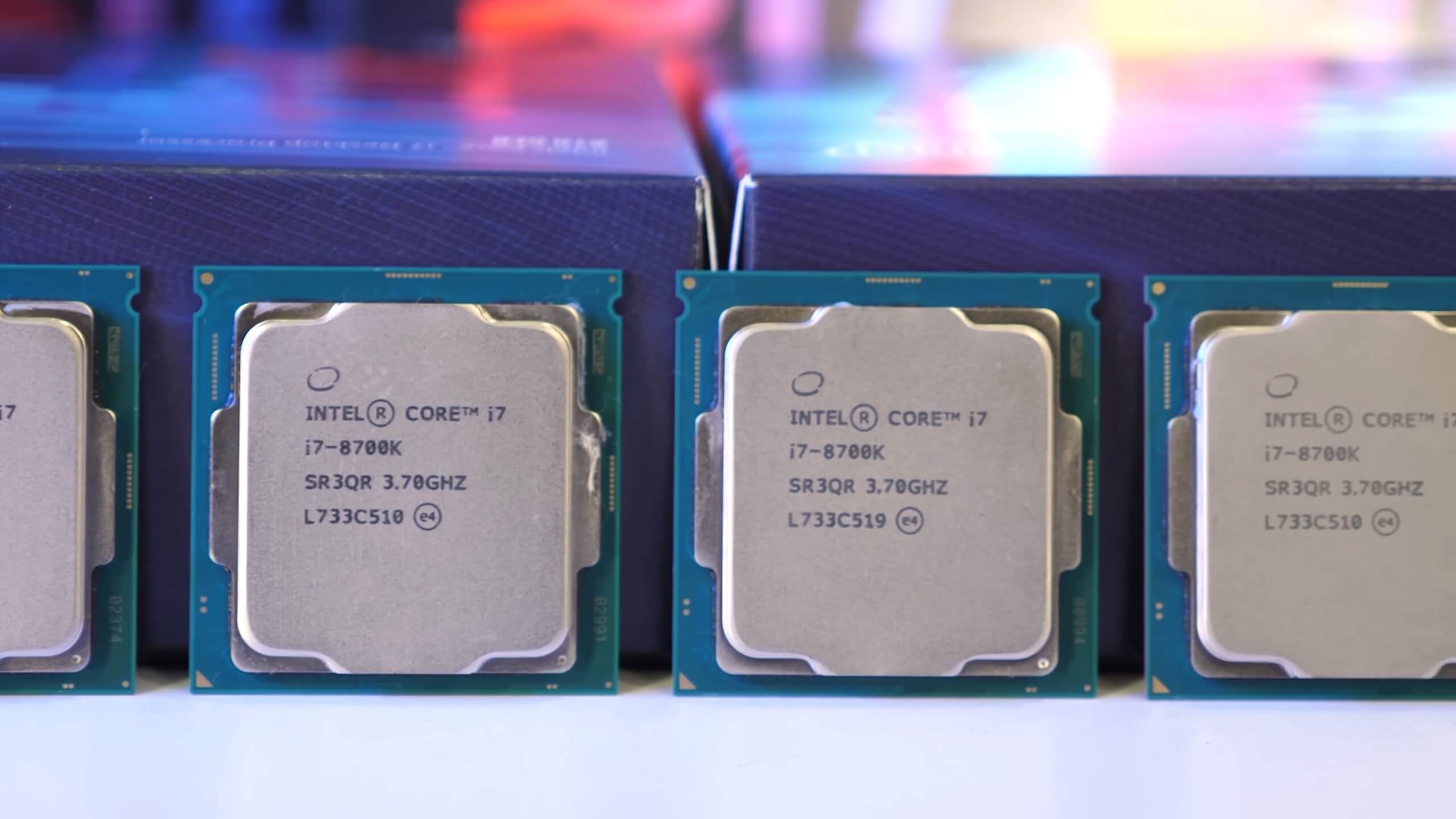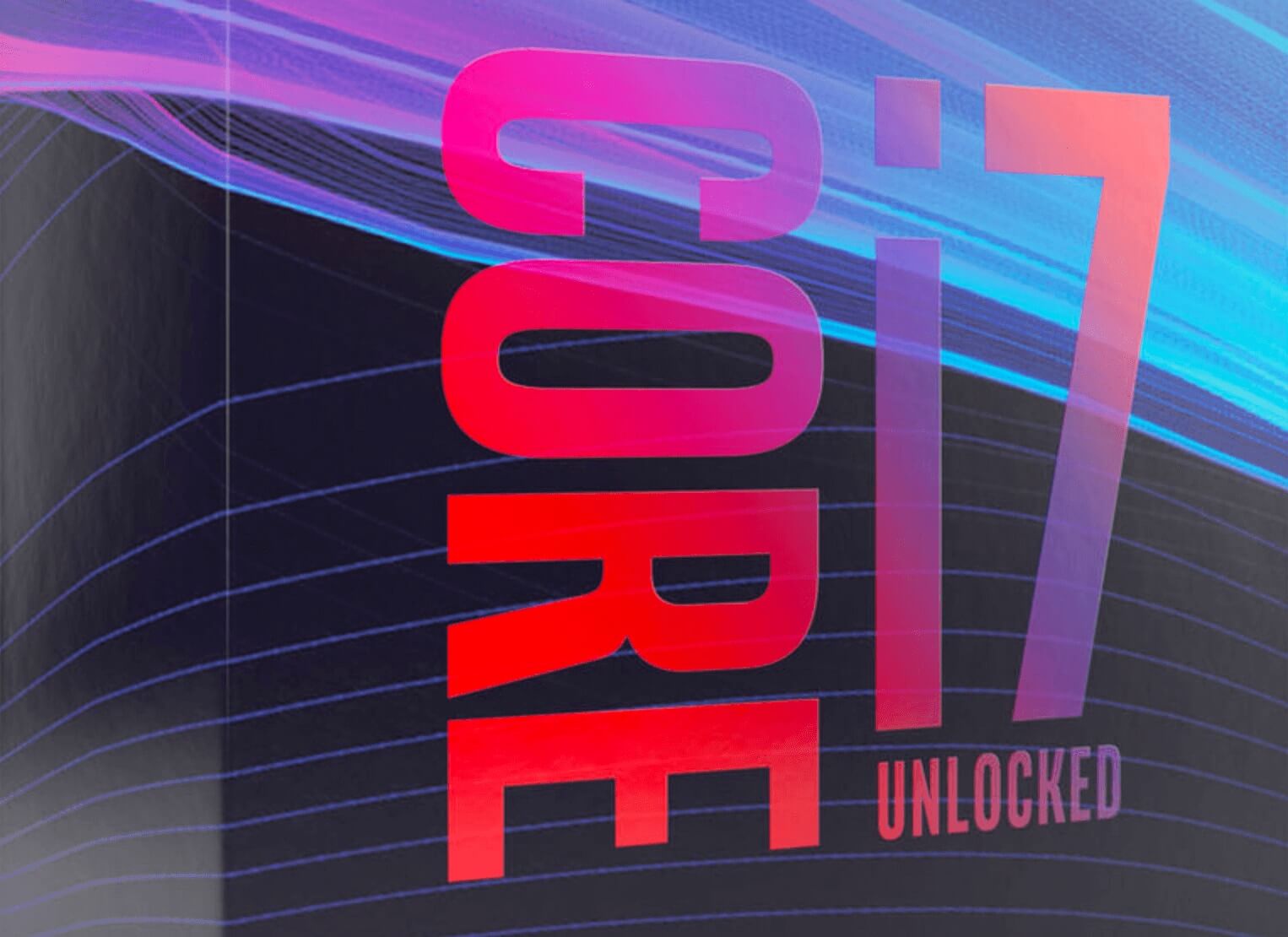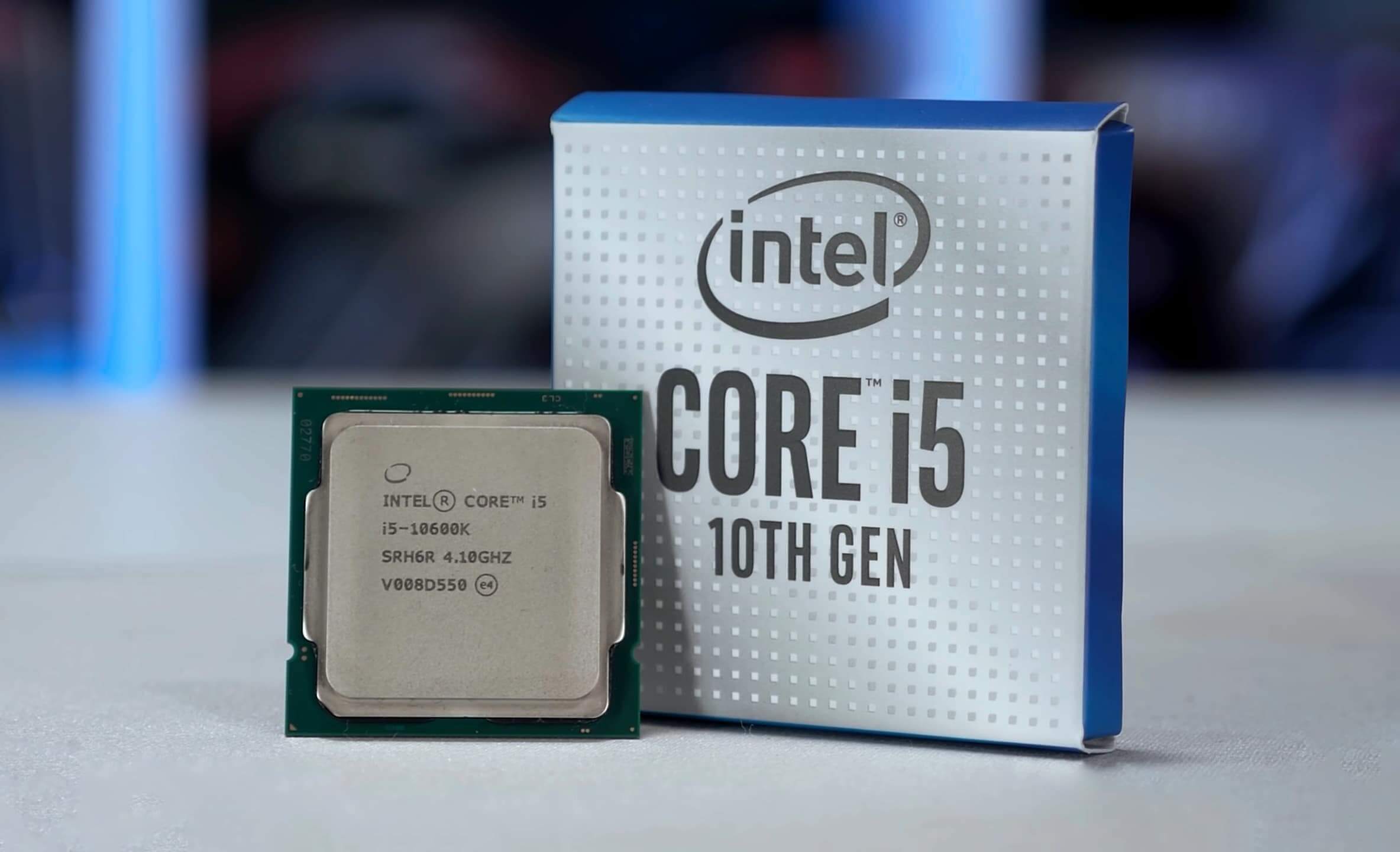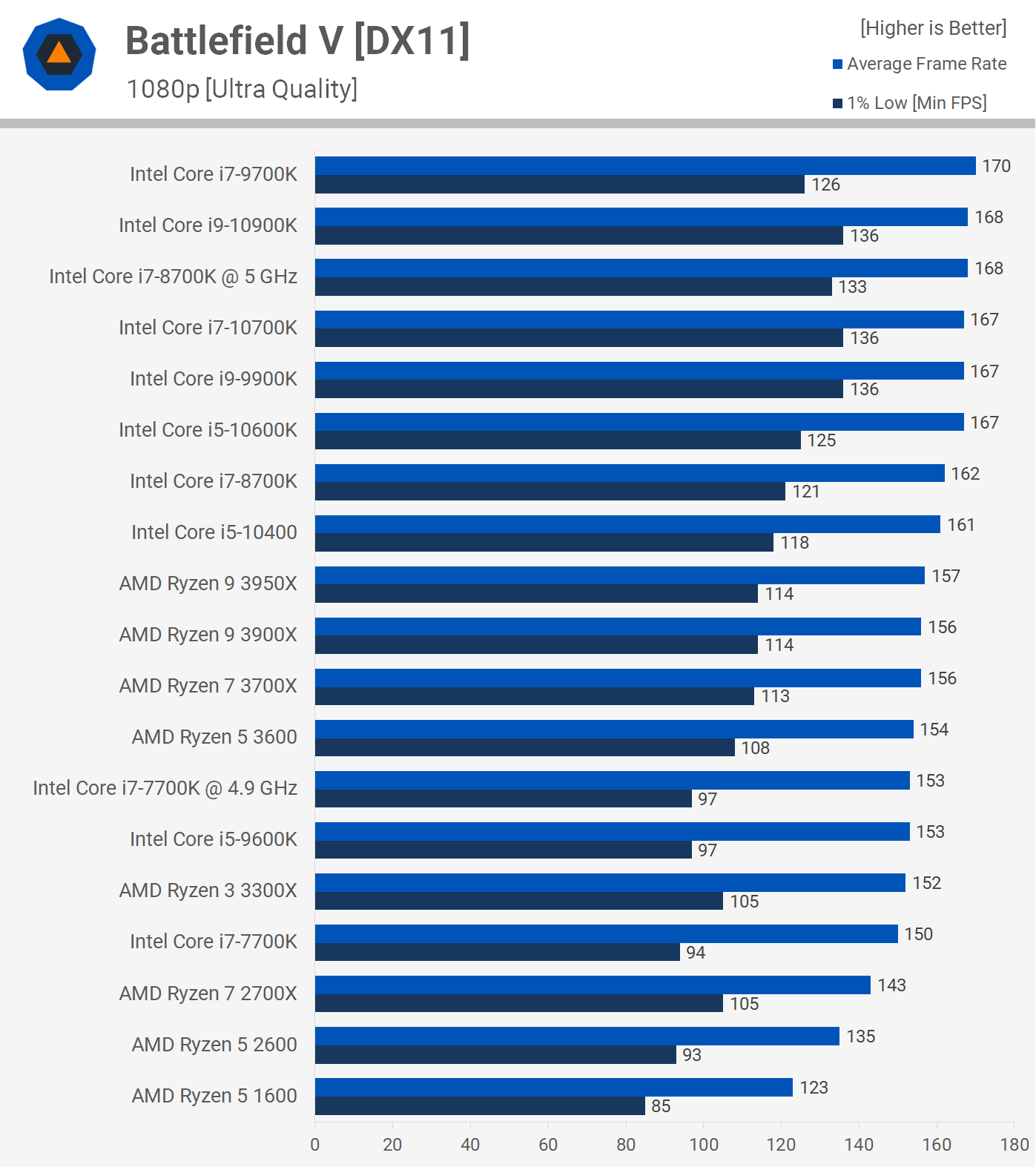It's time we revisited the good old Core i7-8700K, an Intel CPU we're rather fond of after it remained at the top of the game for quite some time, and maybe even today.
But not everyone may have the same kind of feeling towards it. If you were building a gaming PC around four years ago, it was a bit of a slap in the face for some Core i7 owners. That's because less than a year after the release of the 7700K, Intel pushed out the 8700K on an incompatible platform for roughly the same price.
Basically if you bought a 7700K upon release or anytime before October 2017, you were in for a shafting once the 8700K dropped. For the first time in half a decade Intel finally upgraded their flagship Core i7 from 4 cores and 8 threads, to 6 cores and 12 threads. And while that might sound like a trivial upgrade today that we have 8, 10, 12 and even 16-core desktop CPUs, at the time it was a big deal and in many ways still is.
That's because after six years of quad-cores the industry is finally moving on and games are now clearly benefiting from more cores. That also means games can suffer from poor performance when limited to just 4 cores.
Looking back, it meant that for about the same kind of money, Intel was offering 50% more cores and this all happened within the same year, which is why we called the 7700K the worst CPU purchase of 2017. This may sound bad and anti-Intel, but it's not, they were just rising to the competition. You could argue they should have made these moves years earlier than they did, which would have made Ryzen's splash onto the scene more of a drop, like a little trickle, not as splashy.
But they didn't, and what we ended up with was a somewhat rushed 8th generation Core series with two more cores tacked on at the high-end. The results were very impressive though.
The 7700K was already a gaming beast, but with more cores the 8700K was set to retain that title for a much longer period. From day one we called it 'The King of Gaming' and although it was technically superseded by the 9900K and then the 10900K, it's still a very capable gaming processor. If you happen to own it, we doubt you'll be feeling the need to upgrade any time soon.
If you follow our CPU coverage you'll know we have picked the new Core i5-10600K as the best value option for high refresh rate gamers. The i5-10600K is clocked more aggressively out of the box, but it shares its specifications with the 8700K. Both are unlocked parts that typically hit similar clock speeds once overclocked.
The 10600K is $100 cheaper, but it was released roughly two and half years later, so we can safely say 8700K owners got their money's worth in that time.
To see how the Core i7-8700K handles itself in 2020, we've tested it on the Gigabyte Z390 Aorus Ultra. The new 10th-gen Core processors were tested on the Asus ROG Maximus XII Extreme and all Ryzen on the Gigabyte X570 Aorus Master. All PC configurations were completed with an RTX 2080 Ti, 32GB of DDR4-3200 CL14 memory and a Corsair Hydro H150i Pro 360mm AIO liquid cooler.
Benchmarks
As usual we'll start with Cinebench R20 multi-core and as you'd expect, the 8700K with 50% more cores is almost 50% faster than the 7700K. Out of the box we're looking at a 45% performance increase and once overclocked that margin does reach 50% as our 8700K clocks to 5 GHz much more easily. Overclocked, the 8700K is rightly on par with the Ryzen 7 2700X, so a very solid result for the 6-core processor. Of course, the newer 3rd-gen Ryzen series fairs better as you'd expect.
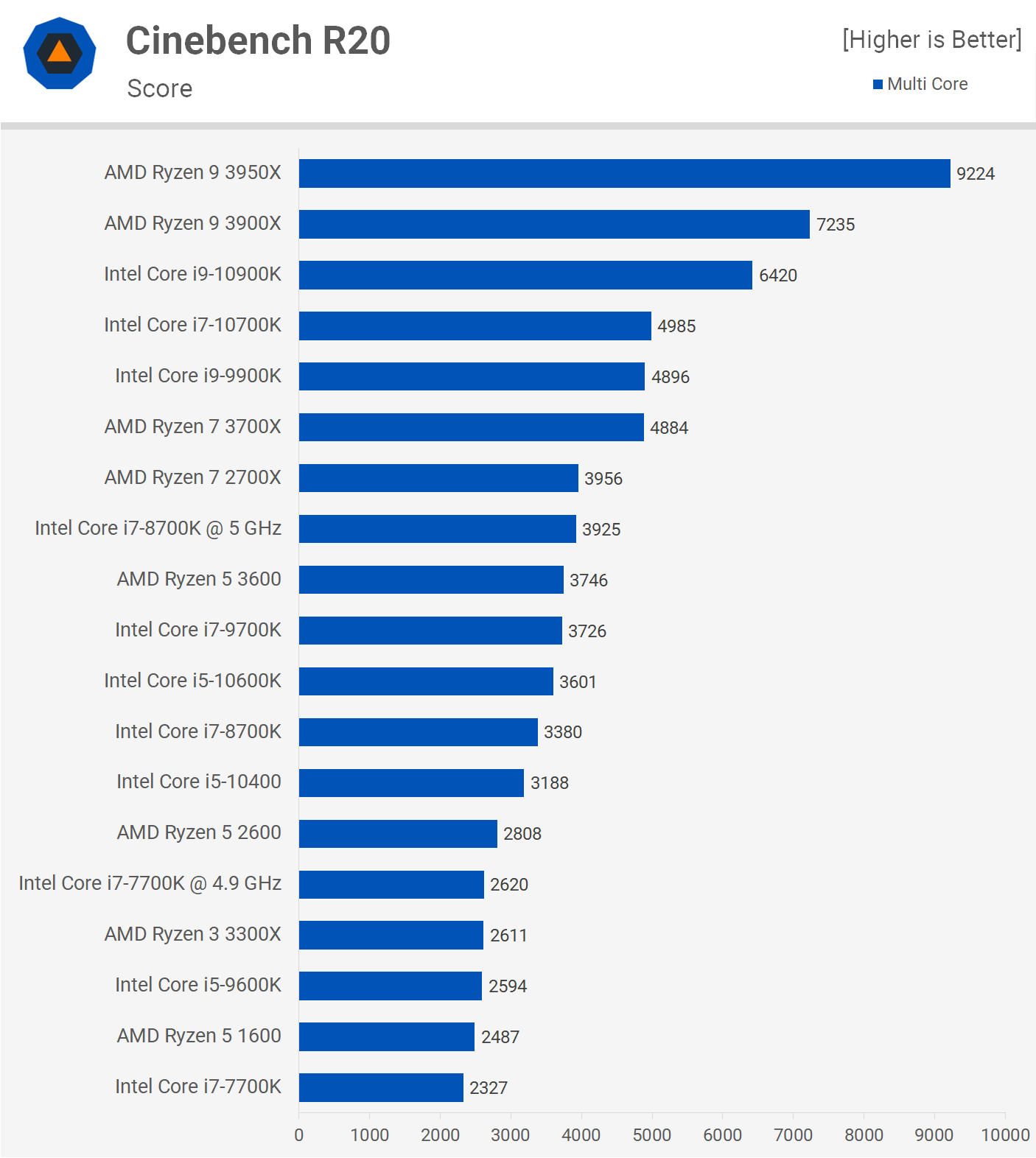
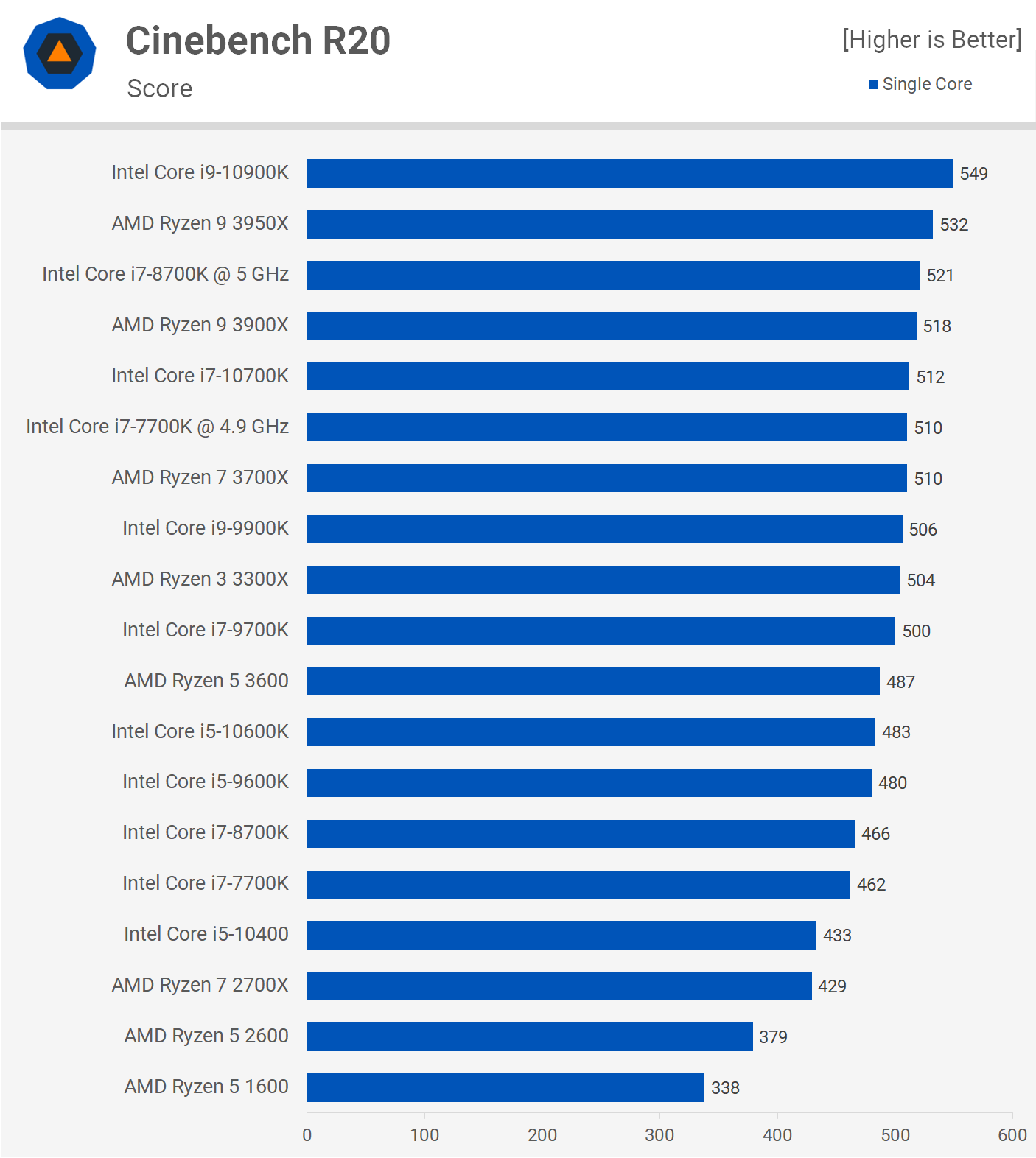
Single core performance is roughly on par with the 7700K and with both overclocking to a similar frequency, the OC results are also much the same.
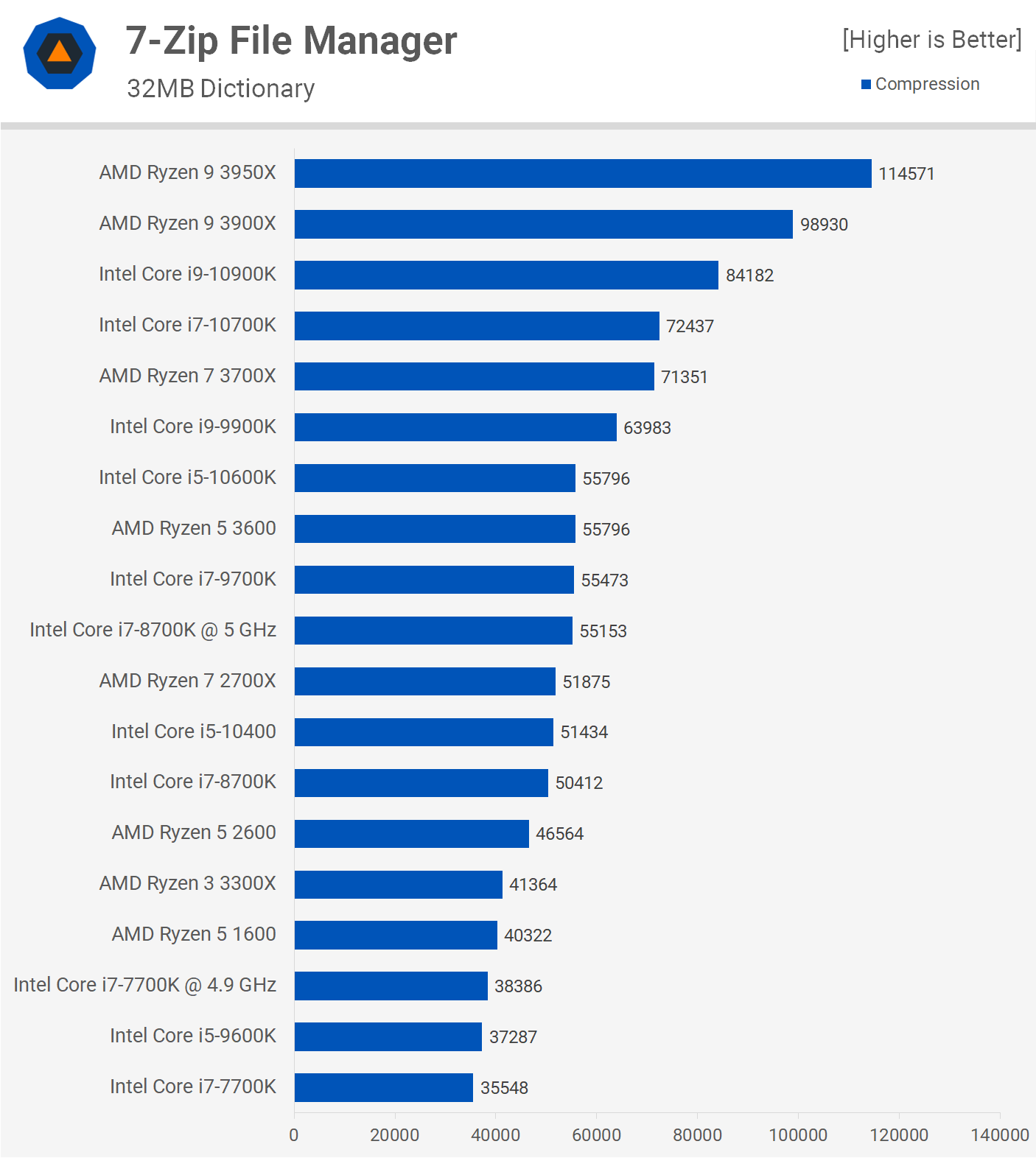
Here we're seeing just over a 40% improvement in compression performance with the 7-Zip file manager, so another significant performance uplift seen within the same year of the 7700K release.
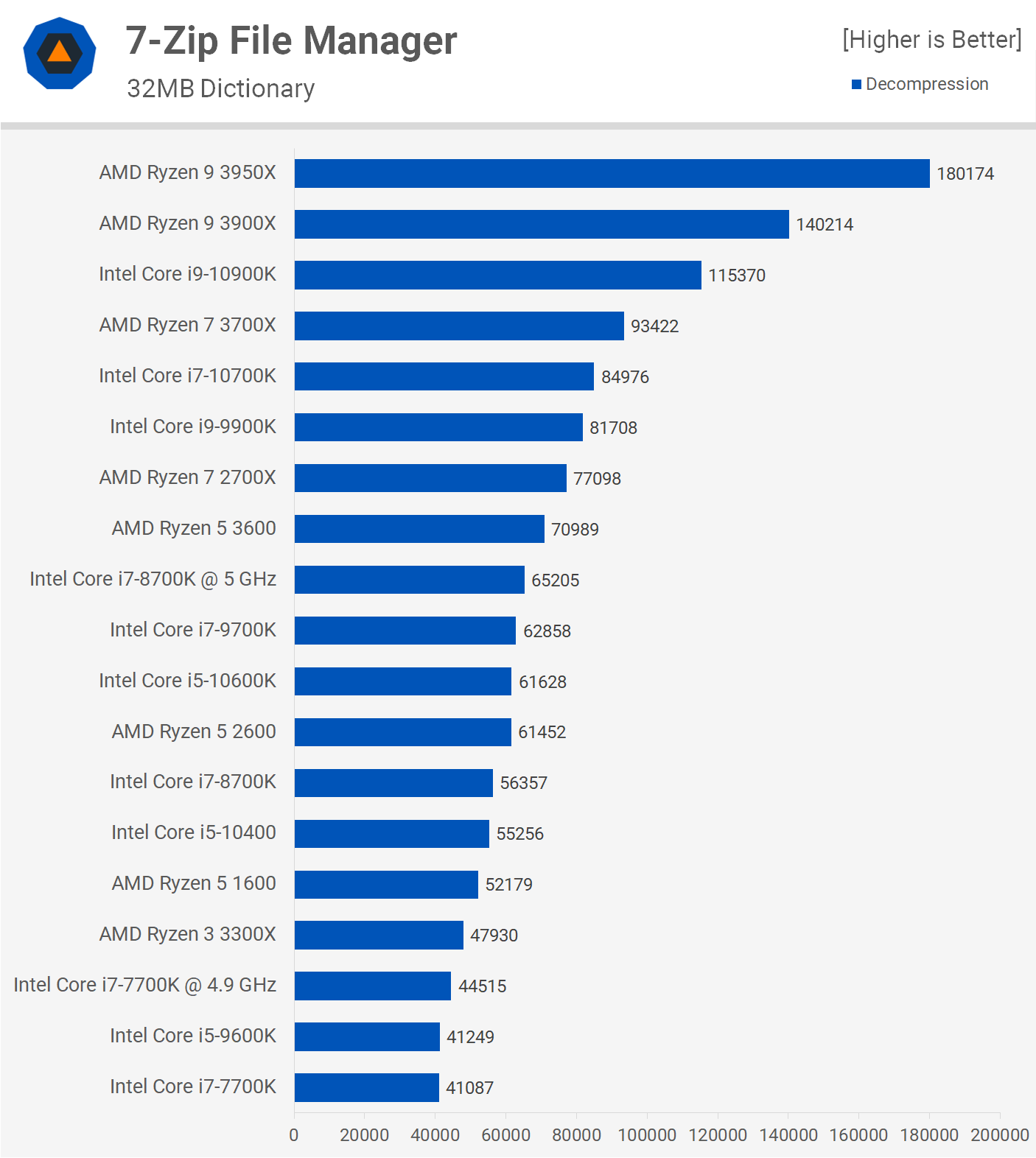
The decompression margins are similar, here the 8700K was 37% faster out of the box and when overclocked to 5GHz couldn't quite catch the Ryzen 5 3600 in this workload.
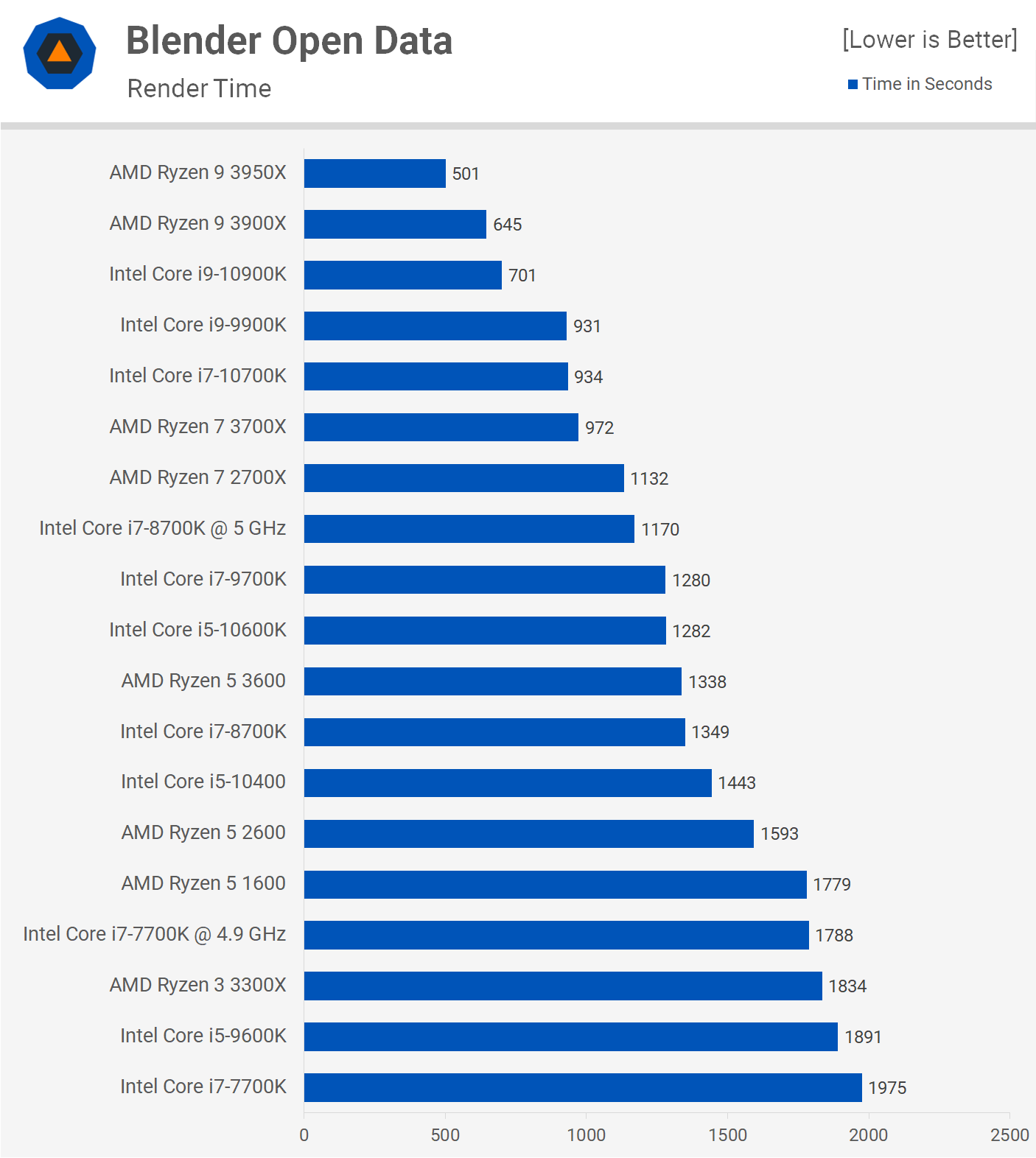
Performance in Blender was boosted by 46%, it's actually a 32% reduction in render time making it 46% faster. This often confuses people and we tend to go with faster, being 46% here as it's in line with the higher is better percentages, so please keep that in mind as we continue to look at the rest of the results.

For code compilation work the 8700K is just shy of 40% faster than the 7700K and that actually made it slower than the Ryzen 5 3600, even once overclocked to 5GHz. That said when compared to the Ryzen 5 2600, it was a good bit faster.
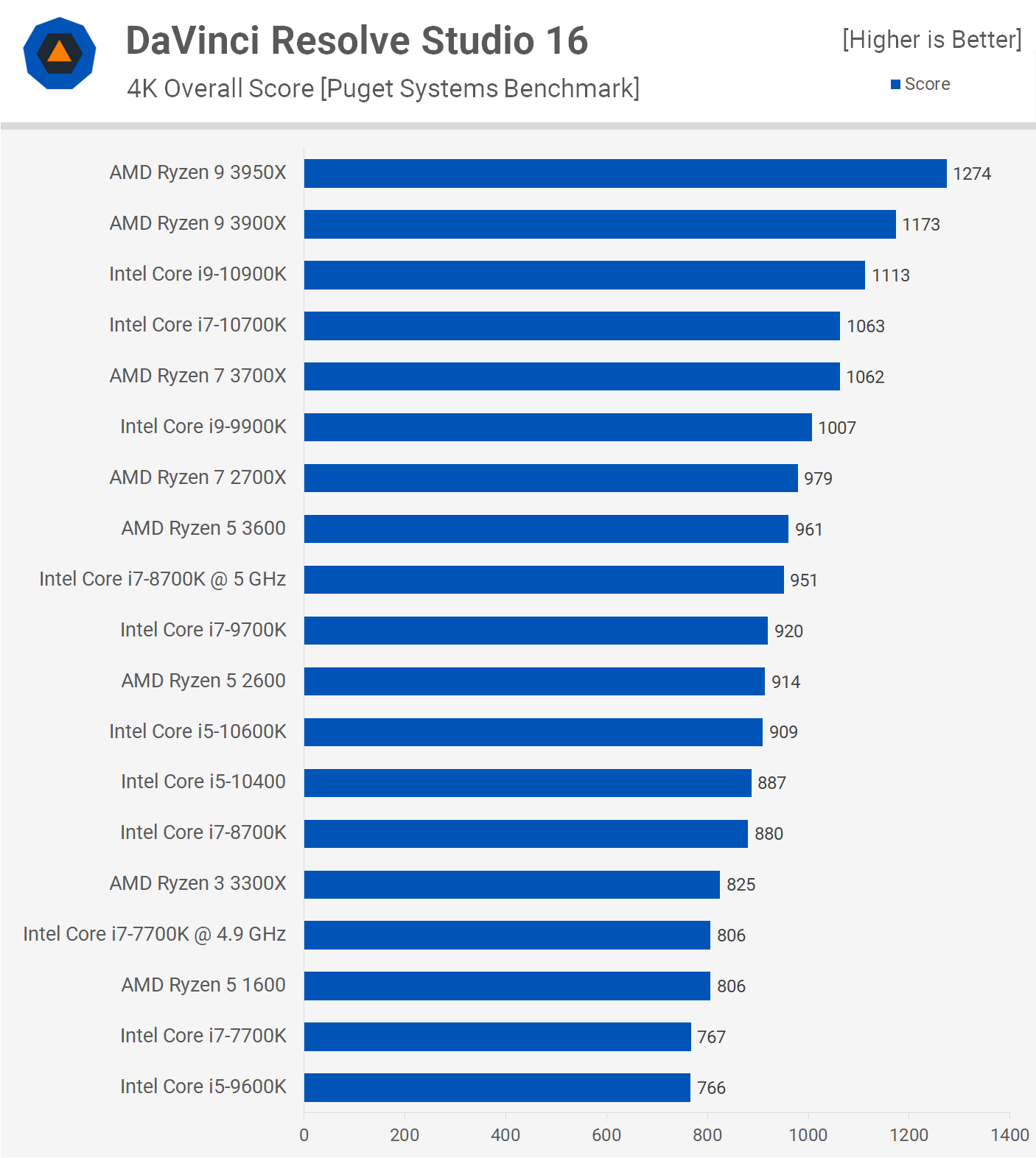
The 8th-gen Core i7 processor delivered excellent results in DaVinci Resolve Studio 16 and while there are certainly faster options available today, it has aged well.
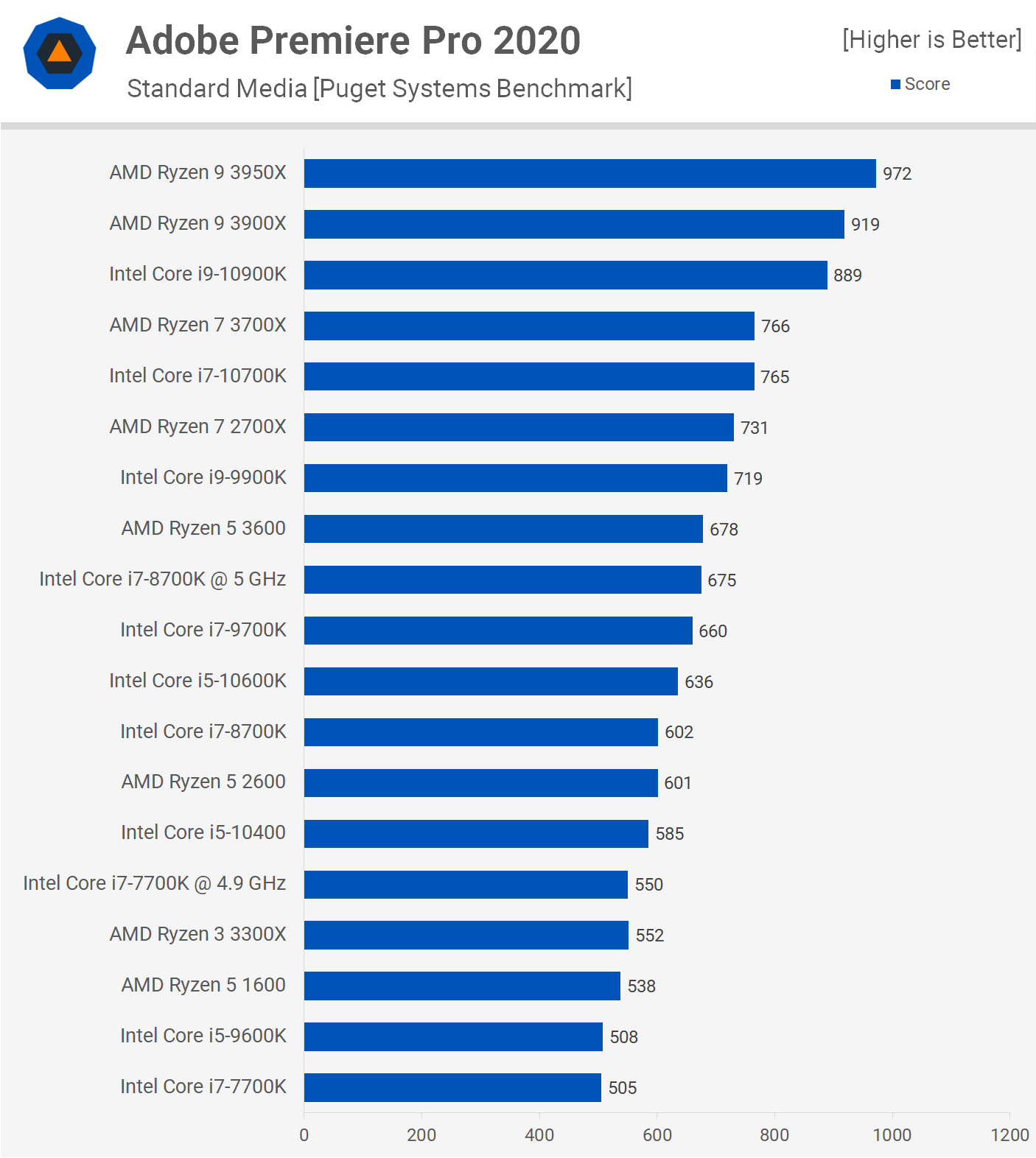
The same is also true of the Adobe Premiere Pro 2020 results, stock we're looking at Ryzen 5 2600-like performance while overclocked it was able to match the stock R5 3600.
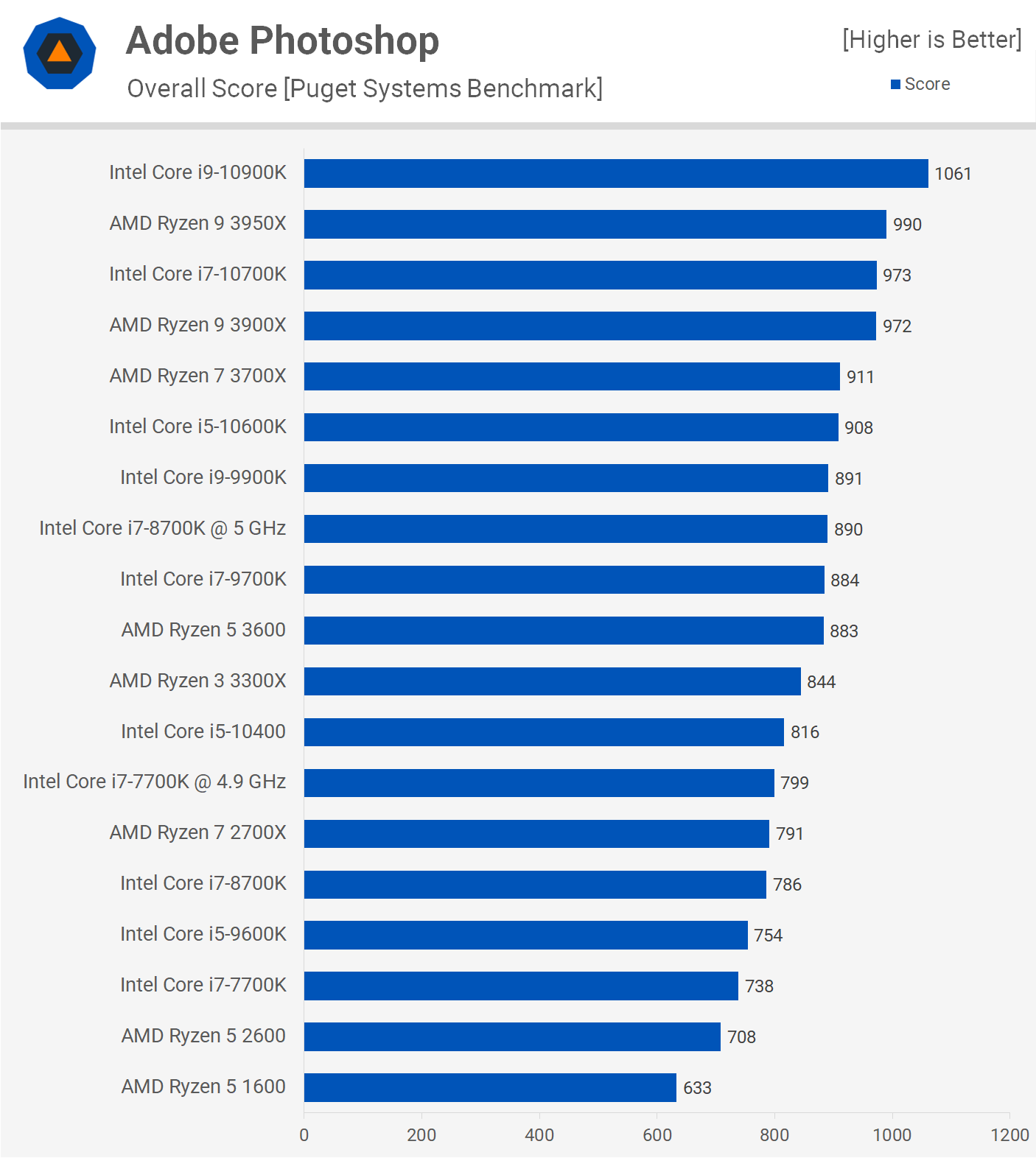
The Adobe Photoshop 2020 performance is very respectable and the stock 8700K was able to match the Ryzen 7 2700X.
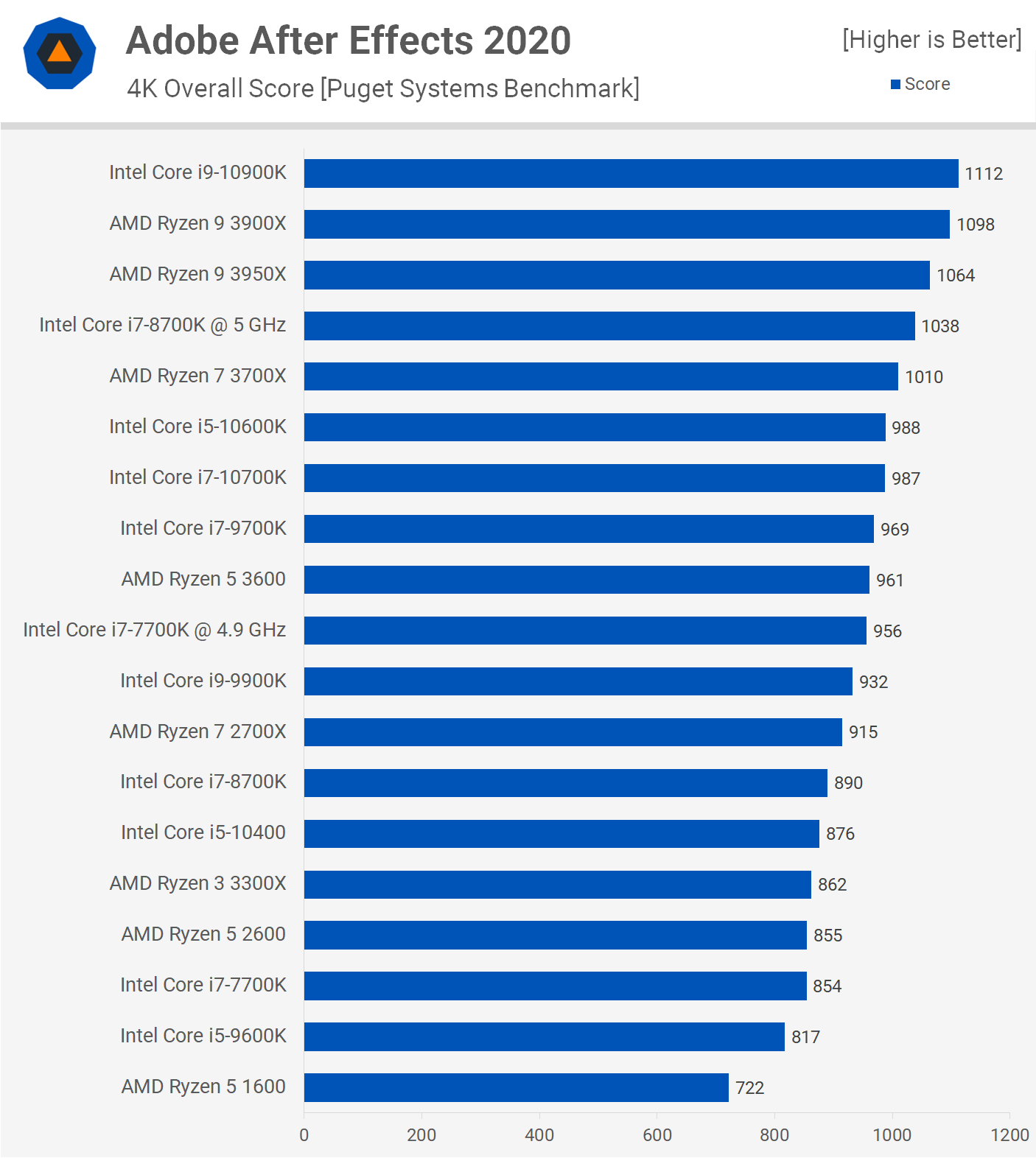
Adobe After Effects 2020 mostly relies on single core performance, though the extra cores of the 8700K do give it a small advantage over the 7700K. But as this application predominantly just a few cores, the overclocked 8700K scores very well.

The 8700K is a 14nm processor running at aggressive clock speeds, yet the power consumption figures are very good. Of course, once overclocked it becomes a bit of a power pig, but even so we're talking about total system consumption south of 300 watts, which is not bad at all.
Gaming Performance
Now it's time to look at gaming performance and we'll start with Battlefield V which has been tested at 1080p using the ultra quality preset with an RTX 2080 Ti.
Remarkably we see an almost 30% improvement in 1% low performance when comparing stock performance between the 8700K and 7700K. Then once overclocked that margin increases to 37%, so clearly as games become more CPU demanding, the 8700K will become considerably faster than the 7700K and more importantly, provide a smoother gaming experience.
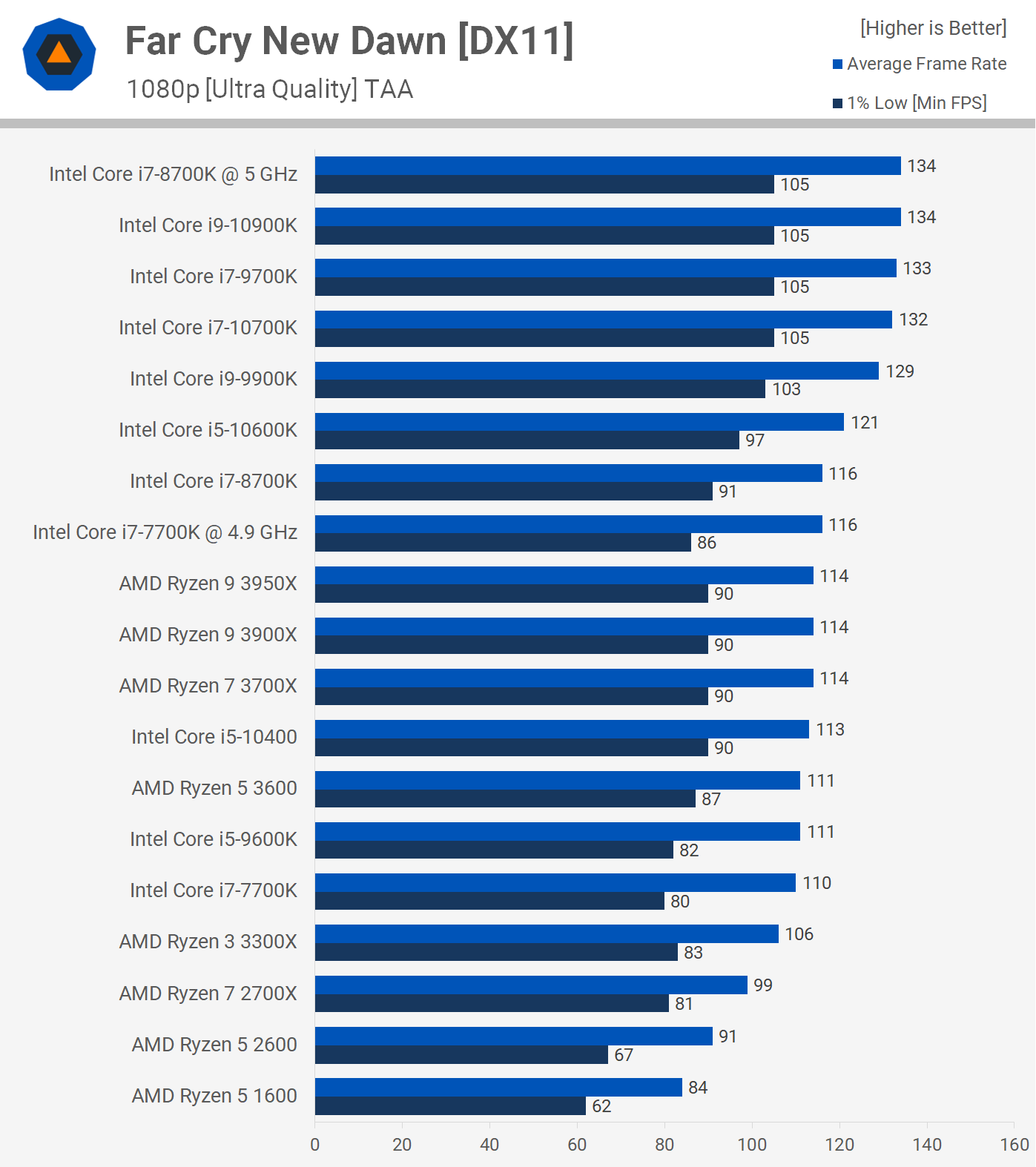
Even in Far Cry New Dawn which we don't think of as a core-heavy title, is seeing some benefit from the 6-core 8700K and with both parts overclocked the 8700K is up to 22% faster.

We see a small ~10% gain when comparing 7th and 8th-gen Core i7 processors in Gears Tactics. The 8700K can match the new Core i9-10900K once overclocked to 5GHz in a very impressive result, proving why it's still one of the best gaming CPUs.
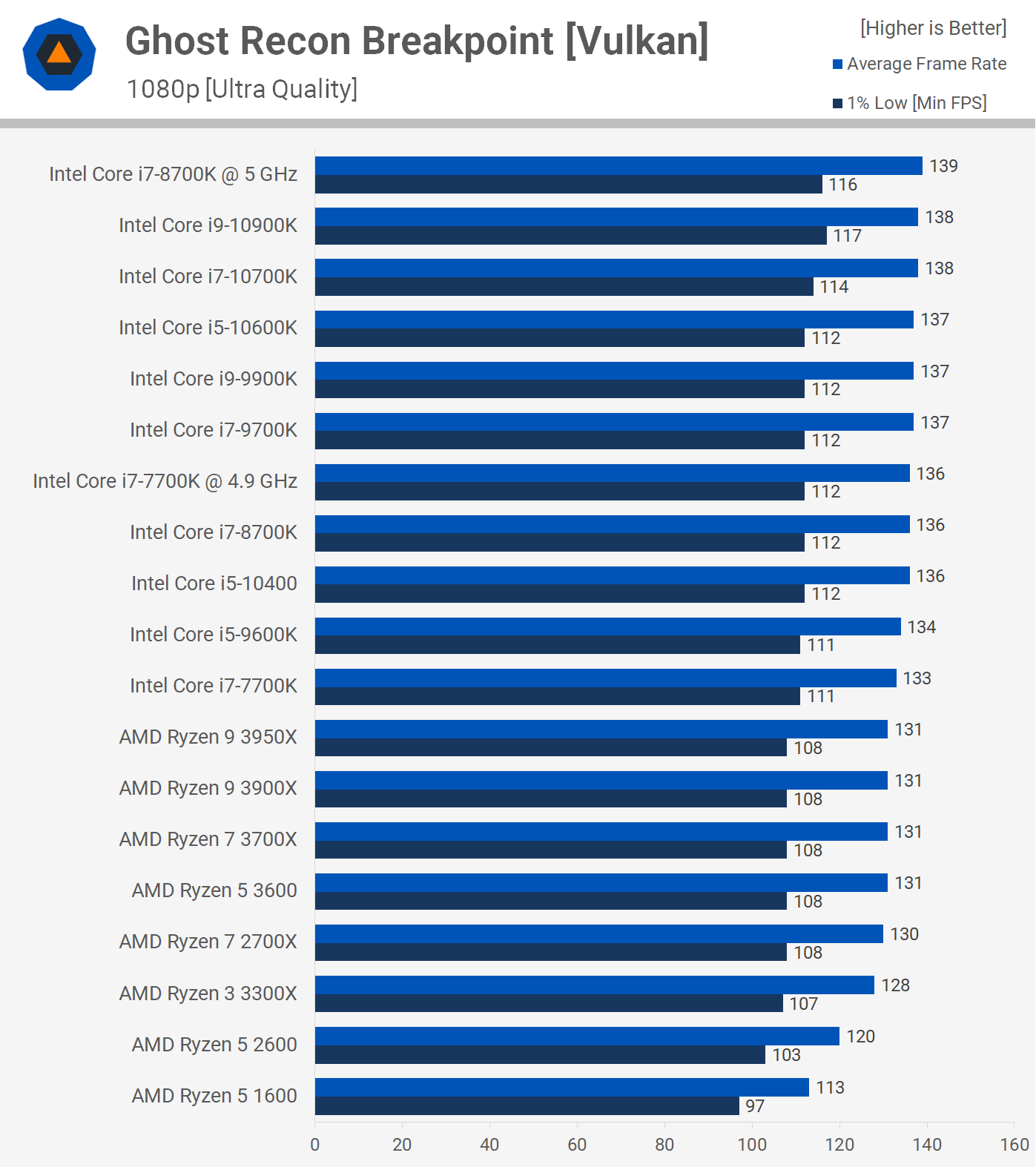
Ghost Recon Breakpoint isn't very CPU sensitive so we're looking at similar performance across the board, particularly with the Intel CPUs and again the 8700K performs exceptionally well.
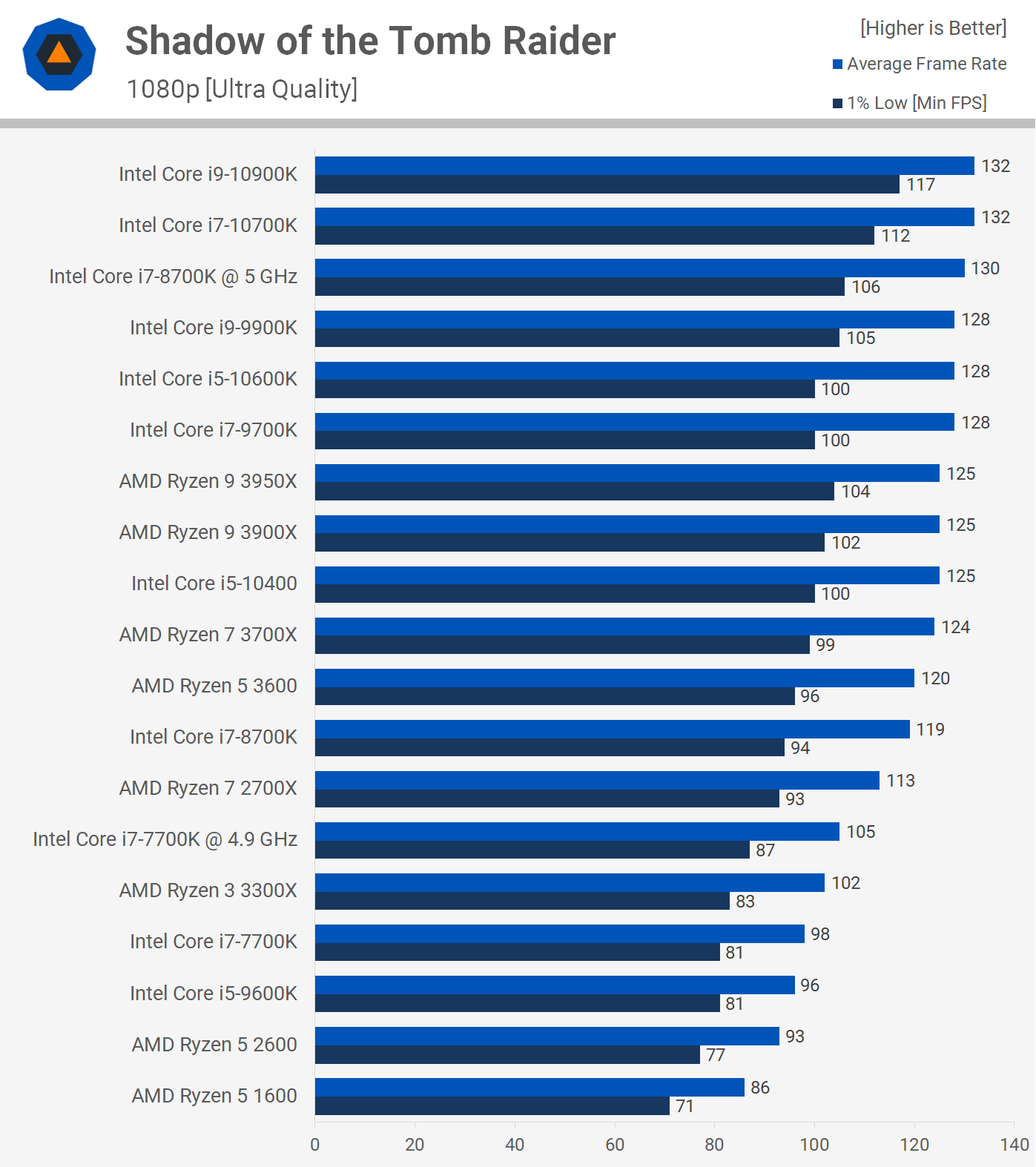
Shadow of the Tomb Raider like Battlefield V can provide telling results, and it gives us a clear indication of where things are heading. Stock we're seeing a 21% increase in frame rate from the 7700K to the 8700K, a significant increase given the CPUs are based on the same design. The stock 8700K is also on par with the Ryzen 5 3600 and this is how we expect these processors to compare in future demanding titles.

Last up we have Red Dead Redemption 2 where we see up to an 18% performance advantage in favor of the 8700K over the 7700K when comparing stock out of the box performance. The 8700K is also comparable in this title with newer and more expensive Intel processors such as the 10700K and 10900K.
And Still ! ... What We Learned
As you may have expected, 2017's king of gaming CPU is still a very capable gamer.
While piecing this content together we went back and read our original 8700K review. We found the conclusion quite interesting given how everything played out over the past few years. Here's the bulk of that conclusion...
"Intel's new mainstream flagship Core i7 processor is a beast. For gamers seeking the ultimate solution there is simply nothing better than the Core i7-8700K. Out of the box performance is incredible, overclocking is even more incredible, power consumption is impressive for a CPU running at over 4 GHz by default and needless to say, this chip is going to find its way into my new gaming rig."
Gaming aside, what about productivity? Still from that review...
"... the Core i7-8700K has the Ryzen 7 1800X beat and it almost wasn't even a contest. (...) Compared to the R7 1700 the 8700K is at best on par in terms of value but with both overclocked to the max the Ryzen 7 has a little more to give.
Still the 8700K has proven to be much more of an all-rounder than the 7700K ever was. Overall I really like Intel's new Core i7-8700K."
A positive review then, and if you pulled the trigger on a Core i7-8700K you'll be looking back thinking you made the right choice, especially for a gaming machine. AMD made the choice a little harder with 2nd-gen Ryzen chips, but for high refresh rate gaming Intel's been the more obvious choice and the Core i5-10600K continues that tradition today.
